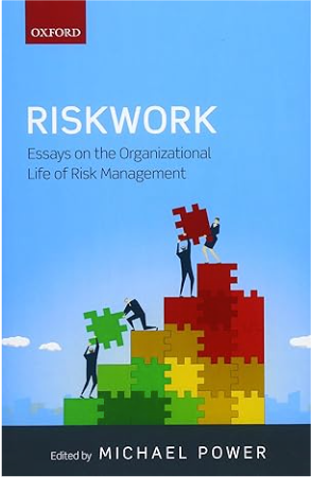
Research and thought leadership
I work with an inspiring community of business leaders, academics, and influential thinkers in fields ranging from strategic leadership to healthcare.
Here is some of my latest research, case studies and thought leadership.
MY BOOKS
In my work developing senior leaders at the University of Oxford, it's not just about teaching; it's about creating lasting experiences that spark their development and growth. This is about leadership that constantly evolves through reflection and action, shaping leaders who are ready for tomorrow's challenges.
Our ability to translate business school thinking into leadership is key for creating effective organisations. The work is complex and often challenging, requiring meaningful engagement with research ideas that work. In healthcare, this means navigating the unique challenges of healthcare organisations to innovate and adapt.
This is a rare case study into the unspoken strategies that management consultants use to secure and deliver lucrative projects in healthcare. In our in-depth research with a leading management consultancy, we learned that battles over timing shape outcomes more than debates over what actually needs to change. It's a reminder that in the push and pull of healthcare reform, understanding the unspoken power and ambitions of different groups is crucial in developing an effective leadership strategy.
Developing Academic Health Science collaboration is a mixed bag. As in all major change projects, the trick is to balance strategic ambition with operational pressures of day-to-day work. Designing effective learning loops is the key to effective strategic planning.
Leadership development needs to be more firmly based on what works. It's clear we need to stretch beyond just training individuals and develop a broader vision that extends to the wider organisation. After all, effective leadership is about weaving together diverse aspects of knowledge, skills, and perspectives.
This is a candid look at the real-life impacts of being under the regulatory microscope in healthcare. One of regulation’s unintended effects it to increase defensive practice. We look at how regulation trigger emotions and reactions that shape professional lives and careers. Ultimately, we need to balance transparency with the realities of medical and healthcare practice.
A key challenge in healthcare organisations is how to bring research, training and clinical practice closer together. Our work with Academic Health Science hospitals creates partnership that break down siloes between researchers, clinicians, and educators to really make a difference in healthcare.
Nurturing a growth mindset about seeing challenges like medical errors as important springboards for learning and growth. Medical education and practice for new doctors is often risk-averse, leading to anxiety, blame and shame that undermines care. We need to develop a healthier training culture that encourages learning from mistakes and enhances patient safety.
To improve the quality and effectiveness of leaders, we need to shift towards more inclusive, shared forms of leadership. It's about enriching our organisations with leadership teams that can effectively tackle the challenges we face.
Our journey into mobilizing management research in healthcare has revealed the critical role of engaging with evidence-based practices. It's an ongoing process of learning, adapting, and applying knowledge to lead our organizations toward better outcomes.
Gender imbalance has a significant impact on how research is funded and developed. This global call to action aims for a future where gender equity is a cornerstone of progress across science and society. We need research to be inclusive and impactful for everyone’s benefit.
The dynamics of organizational turbulence can lead to innovation or crisis, depending on how we handle it. We need to harness these dynamics through effective leadership that balances these tensions between innovation and instability.















